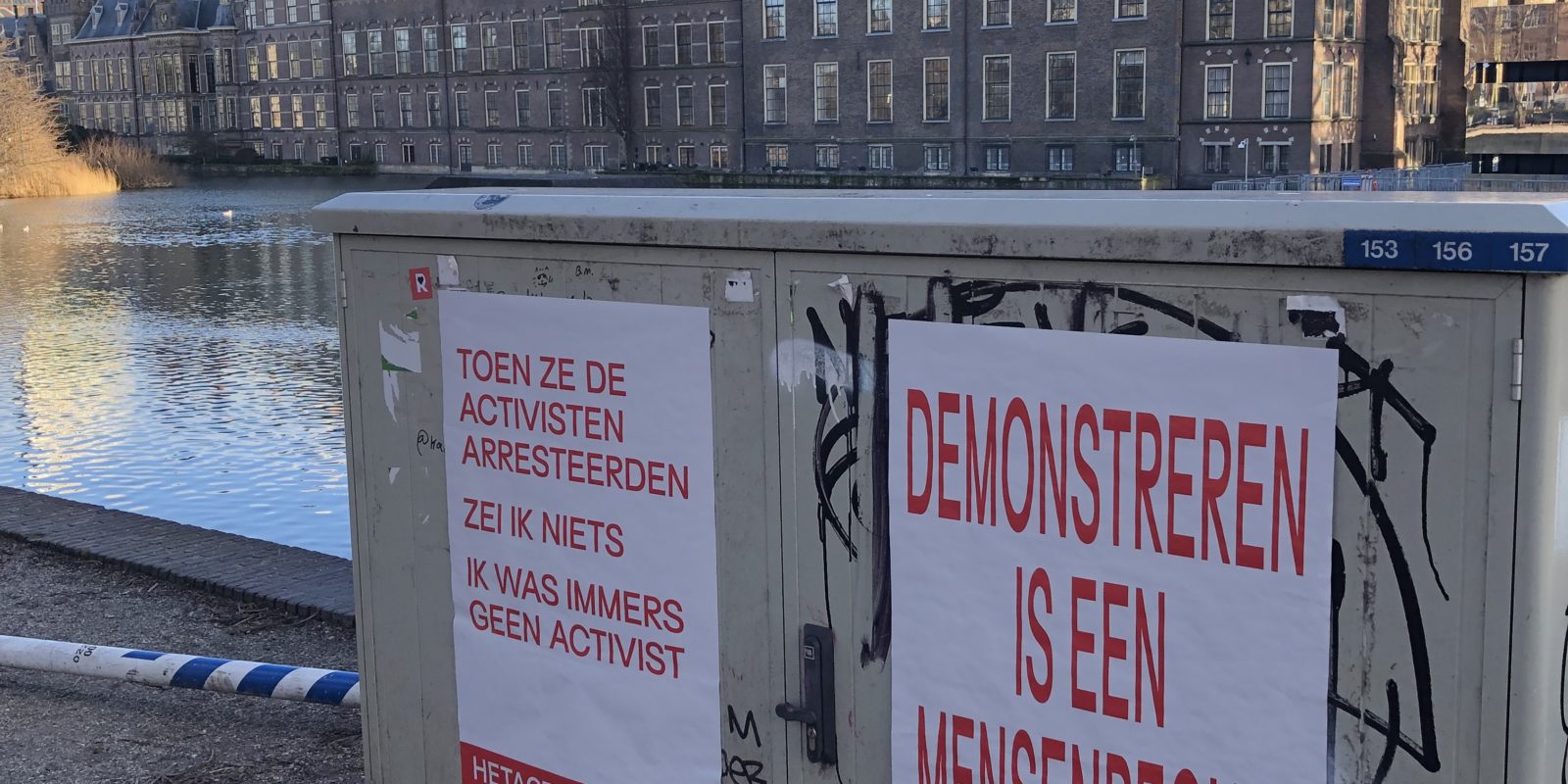Protect the right to protest now, if ever

The right to protest is a human right!
On Jan. 22, 2025, the Tweede Kamer debated the right to protest. Or rather, restricting it.
What began as an ode to this fundamental right by Teunissen (Party for the Animals) asking the ultra-right coalition whether it is willing to continue to guarantee this right in accordance with The European Convention on Human Rights, quickly lapsed into an unequivocal “no.” Their reasoning was summarized in an article in the newspaper Het Parool of the same day (“Coalition: limit right to protest for ‘misuse small group’”). However, this framing, and the proposals associated with it, are a dangerous step in the playbook of authoritarian movements.
Anyone who listened to the nearly eight hours of tirades by right-wing politicians must conclude that the government is particularly targeting activists classified as “leftists” (with the exception of farmers’ protests). These are people who a) protest against inadequate measures to avert a climate catastrophe, b) want to stop the deliberate starvation and destruction of a people with Dutch weaponry, and c) want to warn for the consequences of a far-right government. But while the selective outrage against activists seems to be based on the content of their struggle, no mention is made by the ruling parties of the victims of such policies.
The restriction is justified by the existence of “a small group” of people bent on “subversion” and “disruption.” But the very act of singling out a group in those terms should set off alarm bells. Many of the proposed measures may seem harmless to those who believe they have “nothing to hide,” but are in fact ways to map out and weaken activists: identification requirements, bans on face coverings, and stopping so-called “disruptive” actions. And this should be of enormous concern to all of us.
The Action Fund is familiar with the dangers of dictatorial ideologies. For 57 years, we have worked closely with activists around the world who challenge power and provide the dissent that makes necessary social change possible. Almost always, they are branded troublemakers by their governments, until their actions are celebrated as historic victories. These patterns are predictable to the extent that experts also speak of a far-right playbook. And while two situations are never exactly the same, there are certainly characteristics that one would do well to be alert to and act upon appropriately.
And the demonization, criminalization and isolation of leftist movements are certainly among them – as are the scapegoating of a cultural-religious or ethnic group, the proliferation of conspiracy theories and dogwhistles and the normalization of ‘us vs. them’ and war rhetoric.
In the Netherlands, a conversation about the dangers of the extreme right quickly gets bogged down in the question of whether or not a right-wing extremist leader is the literal reincarnation of a National Socialist. In a context where the singularity of World War II is emphasized in education, this is understandable. In this case, however, we fear that it gets in the way of adequately responding to and preventing a multiplicity of repressive and colonial regimes as well as preventing us from really asking what the lesson of historical fascism could be. We live in the now, where repressive regimes founded in white-nationalist ideology are already active on the world stage. In an era of Big Tech, Trump and nauseating gestures by the richest man on Earth, curtailing the right to protest really is the last thing we need. “What we are witnessing now is the government trying to put all kinds of restrictions and that is extremely worrisome,” says attorney Willem Jebbink in De Nieuws BV on January 22nd, 2025.
In January 1946, Niemöller, looking back on the step-by-step implementation of an authoritarian and white-supremacist regime, preached: “First they came for the Communists, and I did not speak out—
Because I was not a Communist. (…) Then they came for me—and there was no one left to speak out for me.” It was an insight that came too late, and can only serve as a warning for situations in the future.
A future in which history never repeats itself, but now and then can rhyme. So when Eerdmans of the far-right party JA21 talks about separating the “anarchists” from the “law-abiding citizens,” and the VVD wants to “zoom in on a small group” that wants to “destabilize civilization” while racialized and exploited groups are pitted against each other in every possible way, the least we can do is be alert.
Yes, many people in the Netherlands see activists primarily as a nuisance, a bunch of loud barkers that might make you arrive at work twenty minutes late. The French revolution could take place right before our eyes and still we would dismiss it as a bunch of troublemakers and vandals. That many of the things we take for granted, such as the weekend, safe bike lanes or an end to apartheid, have consistently been obtained thanks to order actions that disrupted the status quo is conveniently glossed over – and this is what far-right politicians are anticipating on.
Activism? Annoying.
Until one day it’s about you, your neighbour or your father and you suddenly understand what those activists were so angry about.
And then we’ll be hoping that there are still people left who want to protest on our behalf.
Support Het Actiefonds with 10 euros a month and make actions happen worldwide
donate now